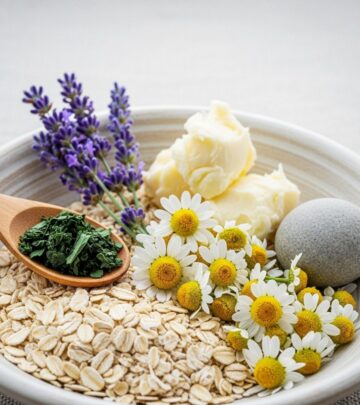14 Natural Remedies for Urinary Tract Infections (UTIs)
Discover effective natural approaches to help soothe and prevent urinary tract infections, from cranberry and D-mannose to lifestyle adjustments.

Urinary tract infections (UTIs) are among the most common bacterial infections worldwide, affecting millions each year. Symptoms like burning sensation during urination, frequent urge to urinate, and pelvic discomfort can significantly impact daily life. While antibiotics are often necessary for treatment, many seek natural remedies to manage, prevent, and relieve UTI symptoms. This article explores 14 popular and science-backed natural approaches to urinary tract health.
Understanding Urinary Tract Infections
UTIs occur when bacteria, most often Escherichia coli (E. coli), enter and multiply within the urinary system, which includes the kidneys, bladder, ureters, and urethra. Although antibiotics are the mainstay of treatment, excessive antibiotic use can lead to resistance and side effects. Therefore, incorporating natural preventative or adjunct therapies is of growing interest, especially for those with recurrent infections.
The Importance of Medical Care
Warning: Natural remedies can help with mild or uncomplicated infections and support overall urinary tract health. However, anyone experiencing severe symptoms, such as high fever, flank pain, or blood in urine, should seek immediate medical attention. Antibiotics are essential in treating complicated or persistent UTIs to prevent progression to kidney infections or sepsis.
1. Hydration: Drink Plenty of Water
Staying well-hydrated is one of the simplest and most effective ways to prevent and manage UTIs. Drinking water:
- Helps dilute urine and flushes out bacteria from the urinary tract
- Encourages regular urination, reducing the opportunity for bacteria to colonize
Aim for at least 8 glasses of water daily, more if you’re active or in a hot climate. Incorporate hydrating foods such as watermelon, oranges, and soups for added benefit.
2. Unsweetened Cranberry Juice
Cranberry juice is one of the most widely discussed natural remedies for UTIs. The key beneficial components in cranberries are proanthocyanidins, which may prevent bacteria from adhering to the lining of the urinary tract. For effective support:
- Choose unsweetened cranberry juice or standardized cranberry extract supplements
- Avoid sweetened or blended juices, as added sugars may worsen symptoms
While studies show cranberry can help reduce the risk of recurrent UTIs, it is less effective as a cure for an active infection.
3. D-Mannose
D-mannose is a natural sugar found in cranberries and other fruits. It works similarly to cranberry by inhibiting the ability of bacteria, particularly E. coli, to stick to the urinary tract walls. Research indicates that D-mannose supplements may:
- Lower UTI recurrence
- Be well-tolerated with few side effects
Consult with your doctor for dosing recommendations and before starting any supplement regimen.
4. Vitamin C
Vitamin C increases the acidity of urine, potentially inhibiting bacterial growth and enhancing immune function. Evidence for vitamin C’s effectiveness in treating existing UTIs in humans is limited. However, including foods rich in vitamin C such as oranges, strawberries, and kiwi, or a moderate vitamin C supplement, may help with prevention. Do not insert vitamin C directly into the urinary tract, as this is unsafe.
5. Probiotics
Probiotics are beneficial bacteria that help maintain a healthy vaginal and gut microbiome. Strains such as Lactobacillus may prevent UTI-causing bacteria from colonizing the urinary tract. Benefits include:
- Reducing the risk of recurrent UTIs, especially with oral or vaginal probiotics
- Restoring healthy flora after antibiotic use
Look for high-quality probiotic supplements containing Lactobacillus strains, or include fermented foods like yogurt, kefir, and sauerkraut in your diet.
6. Uva Ursi (Bearberry Leaf)
Uva ursi is a traditional herbal remedy used for urinary tract health. Its active ingredient, arbutin, may exhibit antibacterial effects against UTI pathogens. Key notes:
- Short-term use (under two weeks) is recommended, as long-term consumption can harm the liver and kidneys
- May be taken as tea, capsule, or extract, but efficacy in large human studies remains unsure
Always consult your healthcare provider before using uva ursi, especially if pregnant or taking other medications.
7. Garlic
Garlic contains allicin, a compound known for its antimicrobial and anti-inflammatory properties, which may help fight UTI-causing bacteria such as E. coli. Including garlic in your diet or taking odorless garlic supplements can be part of a holistic UTI management strategy, but should not replace antibiotics for severe infections.
8. Herbal Teas: Parsley, Chamomile, and Mint
| Herbal Tea | Potential Benefits |
|---|---|
| Parsley Tea | Mild diuretic effect helps flush bacteria |
| Chamomile Tea | Anti-inflammatory and antibacterial; may relieve discomfort and support healing |
| Mint Tea | Antibacterial properties; may help reduce bacterial resistance |
These teas are soothing, support hydration, and may offer mild additional protection against UTIs, though research in humans is limited.
9. Apple Cider Vinegar
Apple cider vinegar contains acetic acid, which may exhibit antibacterial properties. Although evidence for its effectiveness against UTIs is limited, some people use diluted apple cider vinegar as a tonic to support urinary tract health. Excessive consumption can cause digestive discomfort; always use caution and speak with your doctor first.
10. Horseradish and Nasturtium
Horseradish and nasturtium have been used in combination in herbal medicine for their natural antibiotic effects, particularly in preventing recurrent UTIs. Both herbs are believed to support immune function and urinary drainage. Clinical data is limited, so always use these under professional guidance.
11. Canephron N
Canephron N is an herbal supplement containing centaury, lovage, and rosemary. Some research suggests it may be as effective as antibiotics for treating mild UTIs. It is commonly used in Europe but should only be considered as an adjunct therapy with healthcare supervision.
12. Rice Vinegar
Rice vinegar is under investigation for its potential to reduce bacterial presence in the urinary tract. However, there is currently insufficient direct evidence to recommend rice vinegar for UTI treatment or prevention.
13. Green Tea
Green tea contains polyphenols with antioxidant and mild antibacterial effects, which may inhibit the growth of E. coli and reduce inflammation. Incorporate green tea as part of a healthy hydration routine.
14. Healthy Lifestyle and Hygiene Practices
- Wipe front to back after using the toilet to reduce the spread of bacteria
- Urinate after intercourse to help flush out bacteria introduced to the urethra
- Avoid holding in urine; empty your bladder regularly
- Wear loose, breathable underwear, preferably cotton, to keep the area dry and reduce bacterial growth
- Avoid unnecessary vaginal products (sprays, douches, powders)
These practices create an environment less hospitable to pathogens and support urinary tract wellness.
Prevention Strategies and Additional Tips
- Maintain proper hydration daily
- Eat a diet rich in fruits, vegetables, and fiber to support overall immunity
- Consider regular use of probiotics for those with a history of recurrent infections
- Manage underlying health conditions, such as diabetes, that can increase UTI risk
If susceptible to frequent UTIs, work with your healthcare provider to develop a personalized prevention plan that may combine low-dose antibiotics, lifestyle changes, and natural remedies.
When to Seek Medical Advice
- Painful or burning urination lasting more than 24-48 hours
- Blood in urine, fever, chills, or back/flank pain
- Symptoms suggestive of a kidney infection
- Pregnancy or underlying health conditions (seek early guidance)
Timely treatment with antibiotics is essential to prevent complications. Natural remedies can be used for prevention and mild support, but do not delay medical care for moderate or severe symptoms.
Frequently Asked Questions (FAQs)
Q: Can natural remedies cure an active UTI?
A: Natural remedies can help relieve mild symptoms and support urinary tract health, but they should not replace antibiotics for active infections. Consult your doctor for appropriate treatment.
Q: Which beverage is most effective for UTI prevention?
A: Water is the most important, but unsweetened cranberry juice and herbal teas may offer additional benefits. Consistent hydration flushes out bacteria regularly.
Q: How does D-mannose work in UTIs?
A: D-mannose is a natural sugar that attaches to harmful bacteria (especially E. coli), preventing them from sticking to the walls of the urinary tract and making it easier for your body to flush them out.
Q: When should I see a doctor about a UTI?
A: See a doctor promptly if symptoms persist beyond 48 hours, worsen, or if you develop fever, severe pain, or blood in your urine.
Q: Do probiotics really help with recurrent UTIs?
A: Evidence suggests that Lactobacillus probiotics can help restore healthy flora and may reduce UTI recurrence, especially after antibiotic use.
References and Further Reading
- Healthline: Herbs and Natural Supplements for UTIs
- NAFC: Best Home Remedies for UTIs
- Hey Jane: UTI Natural Remedies
- GoodRx Health: Get Rid of a UTI Fast
References
- https://nafc.org/bhealth-blog/home-remedies-for-utis/
- https://www.nebraskamed.com/womens-health/gynecology/9-home-remedies-for-utis-how-to-get-rid-of-bladder-infections
- https://www.healthline.com/nutrition/herbs-for-uti
- https://www.heyjane.com/articles/uti-natural-remedies
- https://pmc.ncbi.nlm.nih.gov/articles/PMC9966151/
- https://www.mayoclinic.org/diseases-conditions/urinary-tract-infection/diagnosis-treatment/drc-20353453
- https://nhcancerclinics.com/blog/goodbye-utis-top-10-home-remedies-for-uti-treatments-that-works/
- https://www.goodrx.com/conditions/urinary-tract-infection/get-rid-of-uti-fast
Read full bio of Sneha Tete












